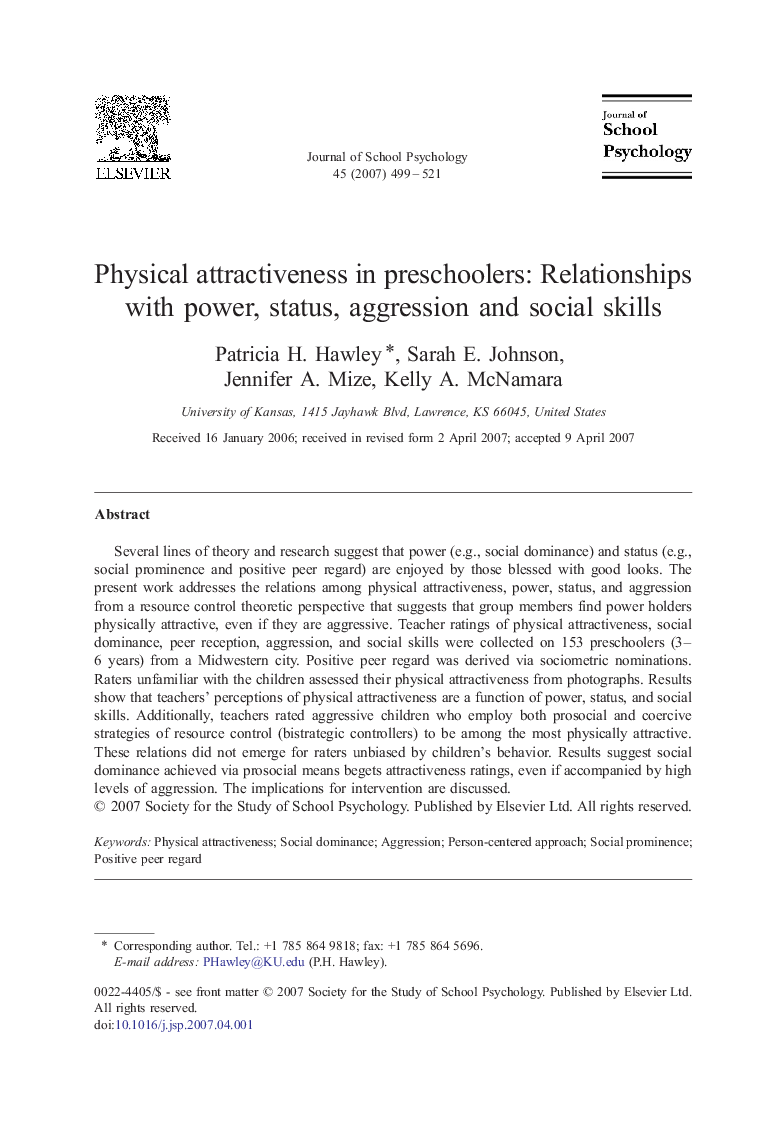| Article ID | Journal | Published Year | Pages | File Type |
|---|---|---|---|---|
| 363694 | Journal of School Psychology | 2007 | 23 Pages |
Several lines of theory and research suggest that power (e.g., social dominance) and status (e.g., social prominence and positive peer regard) are enjoyed by those blessed with good looks. The present work addresses the relations among physical attractiveness, power, status, and aggression from a resource control theoretic perspective that suggests that group members find power holders physically attractive, even if they are aggressive. Teacher ratings of physical attractiveness, social dominance, peer reception, aggression, and social skills were collected on 153 preschoolers (3–6 years) from a Midwestern city. Positive peer regard was derived via sociometric nominations. Raters unfamiliar with the children assessed their physical attractiveness from photographs. Results show that teachers' perceptions of physical attractiveness are a function of power, status, and social skills. Additionally, teachers rated aggressive children who employ both prosocial and coercive strategies of resource control (bistrategic controllers) to be among the most physically attractive. These relations did not emerge for raters unbiased by children's behavior. Results suggest social dominance achieved via prosocial means begets attractiveness ratings, even if accompanied by high levels of aggression. The implications for intervention are discussed.
